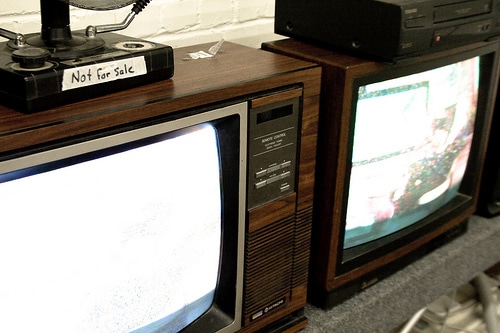
It looks like 2012 will be the year of connected TV. Samsung, Sony (NYSE: SNE), LG (SEO: 066570) and the rest are right now packing their sets with more and more internet apps and services.
In Europe, Samsung TVs will have 1,000 such apps by year’s end. This is the “smart TV” future that is around the corner. But is that the way things will necessarily work out?
“Actually, we believe the TV might become ‘dumb TV’, just a very, very good screen,” Wil Stephens, Boxee’s SVP of international business development, told Thursday’s C21 FutureMedia conference in London.
The co-founder of social TV guide app Zeebox, Anthony Rose, added: “Makers have sought to make TVs smarter and smarter with app stores.
“But it’s quite possible that, in an alternate reality, the TV just becomes a rendering device, the master control panel just moves to the second screen.”
Everyone recognises the potential of the fusion between TV and online services, including over-the-top video content and social networking.
But, inside, there is this emerging tension between TV manufacturers who want to pack all these features in to their own screens and developers who, riding the growth in mobile and tablet sofa multi-screenism, would quite like their own products to be the gateway to the new world.
“I think it’s fascinating TVs are still shipped with remote controls,” Boxee’s Stephens said. “Do we still need them?”
Historically, developers have shown more ability to innovate in services than big consumer electronics manufacturers. In reality, both the “smart” and the “dumb” visions are likely to come to fruition, however – we are about to embark on a new age in TV innovation.
“TV is the window in the living room through which you should be able to negotiate all the content available in the household,” Samsung’s content services head Dan Saunders told FutureMedia.
But Samsung, which benefits from its diversification in multiple consumer electronics segments, does not necessarily think interaction has to happen all on the big screen. For its Smart TV line-up, it also has a dedicated phone-like touchscreen remote, a remote app that works on its Galaxy smartphones and tablets, and an app for watching the living room TV on mobile in another room.
“If I’m watching the football and want to get a beer out of the fridge, I can flick the channel from my TV to the device and go get a beer without missing a thing,” Saunders said.
Next year, Samsung’s higher-end Smart TVs will include a second tuner so that viewers in the kitchen, powered by the main household TV, can watch an entirely different channel at the fridge from the one in the living room.